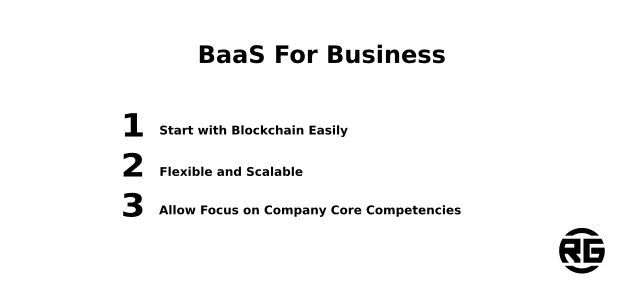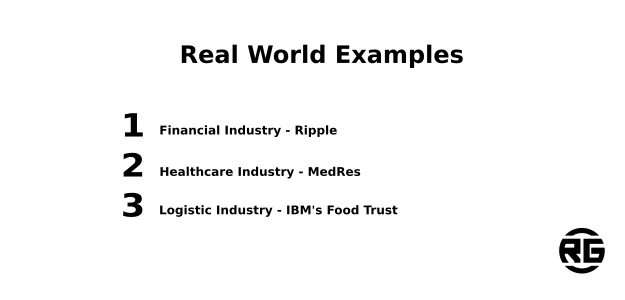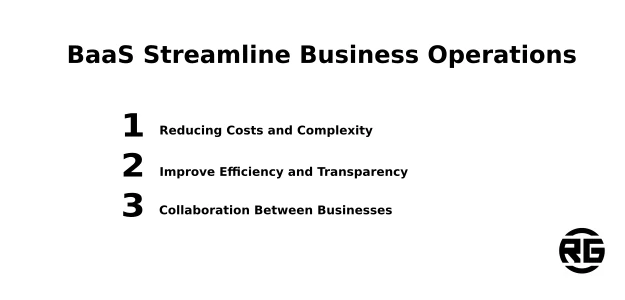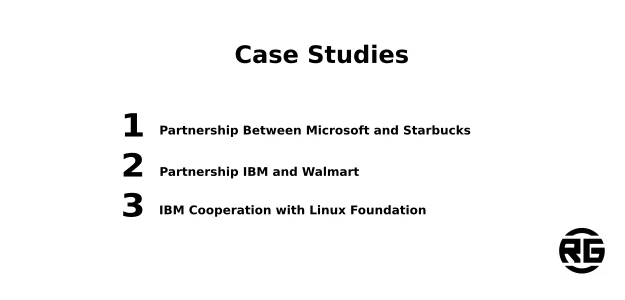Introduction
In fact, blockchain as a service (BaaS) is a cloud-based platform.
This platform allows businesses to use blockchain technology, then the own blockchain infrastructure.
Further, this has opened up a world of possibilities for businesses of all sizes.
Firstly in this article, I will explore the basics of BaaS.
Then, I explain how it revolutionize industries, and the future predictions for BaaS and its impact on business operations.
Benefits of Using BaaS for Businesses
Indeed, the benefits of using BaaS for businesses are many.
Firstly, it allows businesses to get start with blockchain technology quickly and easily.
Businesses no longer need to invest in expensive infrastructure or also hire specialized staff to implement blockchain technology. Additionally, Blockchain as a service providers offer various features that businesses can choose from.
Such as smart contract templates, analytics tools, and security features.
Scondly, Another benefit of BaaS is that it is flexible and scalable.
Businesses then can choose the type of blockchain technology that suits their needs.
Whether it’s a public or private blockchain, or a hybrid solution.
BaaS providers also offer customizable solutions, allowing businesses to tailor the platform to their specific requirements.
So, this flexibility and scalability make BaaS an ideal solution for businesses of all sizes.
Lastly, BaaS allows businesses to focus on their core competencies.
By outsourcing the management and also maintenance of blockchain infrastructure to a third-party provider.
Moreover, businesses can focus on their core operations and leave the technical details to the experts.
This allows businesses to be more efficient and productive, while still taking advantage of the benefits that blockchain technology offers.

Obviously, blockchain as a service makes it easier for many companies to leverage blockchain. All that without having the infrastructure and also staff to run it.
Companies do not need to focus specifically on the blockchain profile, but stay within their competences.
Obviously who else will shoulder this responsibility?
An external company will be hired to implement the blockchain solution, in fact.
Then, this solution is scalable and flexible. Consequently, the entire concept of companies does not have to be built anew.
Therefore, this solution is convenient for many companies.
Current Trends in Adoption
Blockchain as a service adoption is on the rise, but it is still in its early stages.
According to a report by Market Research Future, the BaaS market is expected to grow at a compound annual growth rate of 86% from 2018 to 2023, indeed.
The report also highlights that the increasing adoption of blockchain technology in various industries.
Such as finance, healthcare, and logistics, is driving the growth of the BaaS market.
One of the factors that are driving BaaS adoption is the increasing awareness of the benefits of blockchain technology, so …
Businesses are starting to see the potential of blockchain technology in streamlining their operations, then reducing costs, and improving security.
Additionally, the availability of BaaS providers has made it easier for businesses to adopt blockchain technology.
Altogether, without the need for specialized staff or infrastructure.
Another trend in BaaS adoption is the increasing collaboration between BaaS providers and other technology companies.
For example, Microsoft has partnered with various BaaS providers to integrate blockchain technology into its Azure cloud platform. This collaboration is making it easier for businesses to adopt blockchain technology, indeed. A one-stop-shop for all their cloud and blockchain needs is connected, at first.
There is undoubtedly a trend towards blockchain as a service.
Companies are increasingly realizing what blockchain is and that it can be used very effectively, so why not do it?
The entire trend is intensifying collaboration between blockchain-as-a-service providers, especially.
I suspect this trend will accelerate in the future, in fact.
Real-world Examples of BaaS in Action
Firstly, blockchain as a service is being used in various industries to revolutionize business operations.
In case of finance industry, BaaS reduce the risk of fraud.
One example is Ripple, particularly, a BaaS provider that offers a decentralized payment network. So that allows banks to settle cross-border payments in real-time.
Secondly, in the healthcare industry, BaaS is being used to improve the security and privacy of patient data.
Another example is MedRec, a BaaS solution that uses blockchain technology to create a decentralized medical record system indeed.
In fact, this system allows patients to have control over their medical records and share them securely with healthcare providers.
In the logistics industry, BaaS is being used to improve supply chain management, also.
Next example is IBM’s Food Trust, a BaaS solution to track the origin of food products from farm to table, surely.
This system improves transparency and accountability in the food supply chain, so reducing the risk of foodborne illnesses and improving consumer confidence.

Cryptocurrency opponents attack the industry due to its lack of practical application.
Approx. I agree, but wherever you look you see examples of practical application.
Also this attack is simple ignorance resulting from lack of knowledge.
In the case of blockchain as a service, especially, the practical examples of Ripple’s cooperation with the traditional banking sector.
And what do you think Ripple is accomplishing, further? To be precise, it’s the sixth cryptocurrency in terms of market capitalization, so far?
Do you think this is also a fictitious activity and banks cooperate, seeing opportunities only because it is fictitious?
Please let’s be serious, so to say!
How BaaS Can Streamline Business Operations
Firstly, blockchain as a service can streamline business operations in various ways.
One way is by reducing the cost and complexity of implementing blockchain technology, surely.
Businesses can avoid the upfront investment in infrastructure and specialized staff by using a BaaS provider, at first.
This reduces the time and effort required to implement blockchain technology, then allowing businesses to focus on their core operations.
Another way BaaS can streamline business operations is by improving efficiency and transparency.
By using smart contracts, businesses can automate various processes, then as a consequence, reducing the need for manual intervention.
Due to this fact, this improves efficiency and reduces the risk of errors.
Additionally, blockchain technology provides a transparent and immutable record of transactions, improving accountability and reducing the risk of fraud.
Lastly, BaaS can improve collaboration between businesses.
By using a shared blockchain infrastructure, businesses can collaborate more easily and securely, then reducing the need for intermediaries.
This improves efficiency and reduces costs, allowing businesses to be more competitive in the market, overall.

Okay, now that you know that blockchain as a service is the real deal. It’s time to find out why, because…
Firstly, lower costs and complexity. This is a lot, because which entrepreneur or company does not look for savings.
Only the foolish ones, write it surely!
Secondly, it also offers a blockchain package, i.e. transparency and efficiency.
So, this only makes your business operations better handled.
Who doesn’t need this, indeed?
Thirdly, it enables collaboration between businesses. And who doesn’t cooperate, in fact?
Only a fool!
Don’t get me wrong, because blockchain as a service really offers a lot.
Business and its operation involve huge costs, so why not look for savings.
Challenges of Implementing BaaS
Businesses need to choose the right one that suits their needs.
Additionally, the lack of standardization makes it difficult to integrate different blockchain solutions,
reducing interoperability and increasing complexity.
Another challenge is the issue of governance.
With a decentralized blockchain infrastructure, there is no single authority that governs the system.
This can lead to disputes over governance and decision-making, reducing the effectiveness of the system.
Additionally, there is a risk of illegal activities on the blockchain, such as money laundering and terrorism financing.
Lastly, there is a lack of awareness and understanding of blockchain technology.
Many businesses are still unfamiliar with blockchain technology and its potential benefits.
This lack of awareness can lead to a slow adoption of BaaS,
reducing its potential impact on business operations.
BaaS Providers and Their Unique Offerings
There are various BaaS providers in the market, each with their unique offerings.
One of the most popular BaaS providers is Microsoft Azure Blockchain,
which offers a range of blockchain solutions for businesses.
Another popular provider is IBM Blockchain, which offers a range of blockchain solutions for various industries.
Such as finance, supply chain, and healthcare.
Other BaaS providers include Amazon Web Services (AWS) Blockchain, Oracle Blockchain Cloud Service,
and SAP Cloud Platform Blockchain.
Each provider offers various features and tools that businesses can choose from.
Such as smart contract templates, analytics tools, and security features.
Future Predictions for BaaS
The future of BaaS looks promising, so the market expected to grow rapidly in the coming years.
As more businesses become aware of the benefits of blockchain technology, so BaaS adoption is expected to increase.
Additionally, the increasing collaboration between BaaS providers and other technology companies is expected to make it easier for businesses to adopt blockchain technology.
BaaS is expected to have a significant impact on business operations, as a matter of fact.
By streamlining operations, improving efficiency and transparency, and reducing costs, BaaS can help businesses be more competitive in the market, indeed.
Additionally, BaaS can improve collaboration between businesses and reduce the need for intermediaries, improving efficiency and reducing costs.
Case Studies of Successful BaaS Integration
One example of a successful BaaS integration is the partnership between Microsoft and also Starbucks.
Microsoft Azure Blockchain is used to track the origin and movement of coffee beans from farm to cup, so improving transparency and accountability in the supply chain.
So this system allows Starbucks to provide more information to customers about the origin of their coffee.
Overall improving customer confidence and loyalty.
Another example is the partnership between IBM and Walmart.
IBM’s Food Trust is used to track the origin of food products from farm to table, then improving transparency and accountability in the food supply chain.
This system reduces the risk of foodborne illnesses, surely.

Who doesn’t know Microsoft and who hasn’t ever drank coffee at Starbucks, indeed?
But wait, the next giants are IBM and Walmart.
Both are huge corporations and, as you can see, both are open to technology and innovation.
One last example to IBM working with the Linux Foundation.
You may not know the Linux Foundation because it is an organization focused on open-source.
Like I know her perfectly, but you don’t have to!
In any case, this cooperation is also, in my opinion, a cooperation of giants.
Conclusion
BaaS is changing the future of business operations, surely. Generally, by providing a flexible, scalable, and customizable blockchain infrastructure.
Then, businesses can take advantage of the benefits of blockchain technology without the need for specialized staff or infrastructure. BaaS can streamline operations, so improve efficiency and transparency, and reduce costs.

Leave a Reply
You must be logged in to post a comment.